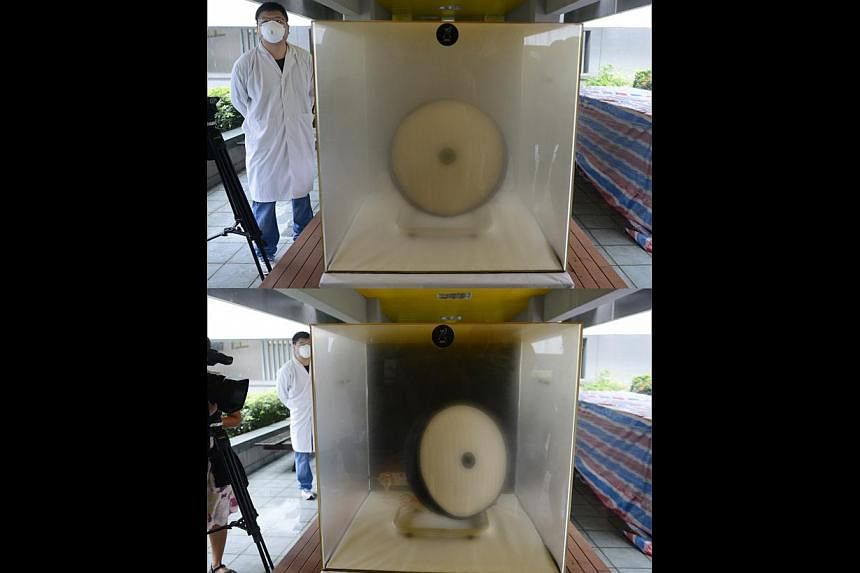PEOPLE here will have a new, relatively inexpensive way to protect themselves at home if haze returns, as feared in the next few months.
Researchers from the National University of Singapore (NUS) have come up with a new indoor filtration system that can dramatically reduce levels of small toxic particles called PM2.5.
High concentrations of the particles can cause eye and lung irritation in the short term, and could lead to lung and bladder cancer if inhaled over long periods.
The system - which consists of a filter and cover fitted over a fan - can also reduce volatile organic compounds associated with the smell of haze.
The Faculty of Engineering researchers said the system has been tested in homes, offices and hotels.
They even tested it in severe haze conditions, taking it to a classroom in Pekanbaru in Riau, Indonesia in February.
The classroom's PM2.5 level was nine times above the World Health Organisation (WHO) safe limit.
The system reduced the PM2.5 level by about 60 per cent after 90 minutes, and would have lowered it to a safe level in about two hours and fifteen minutes, they said.
Typically, the system can reduce PM2.5 concentrations in a room by up to 85 per cent within 30 to 60 minutes, said the researchers.
"Our goal is to provide everyone in Singapore with affordable protection against PM2.5 exposure at a fraction of the price of a regular air-purifier," said Associate Professor Jeff Obbard, of the university's Department of Civil and Environmental Engineering.
Minister for the Environment and Water Resources Vivian Balakrishnan has said this year's haze could be even worse than last year's record pollution.
This is partly due to the El Nino weather phenomenon - linked to droughts in South-east Asia - that is expected to hit in the second half of the year.
Different versions of the system will be sold online from Wednesday, with delivery from the middle of next month.
Prices start from $150 for a fan, filter and cover package.
Face masks will be sold eventually, and there are plans to sell the products at convenience stores.
Customers can retrofit their own fans for $50, but the filter and cover sets will be available only for fans with 18-inch frames, for a start.
Disposable replacement filters will cost $30 or less each.
During a haze crisis, the filters may have to be changed about once a week.
While some firms in China have sold filters for people to attach to fans, these do not appear to have been tested or were tested in smaller rooms.
The NUS scientists declined to compare the technologies.
The NUS system will be sold by the university's spin-off company AiRazor Technologies.

